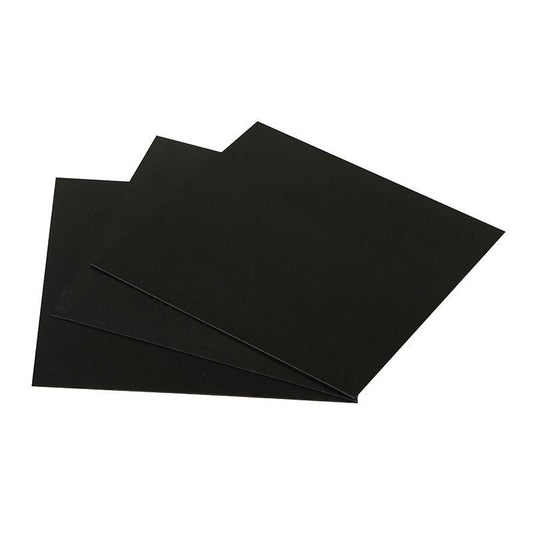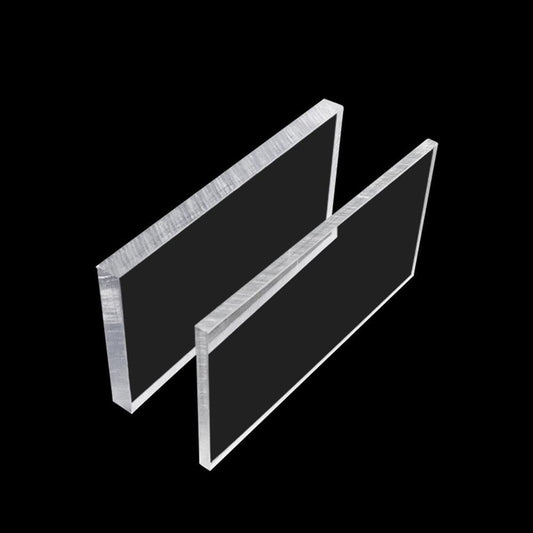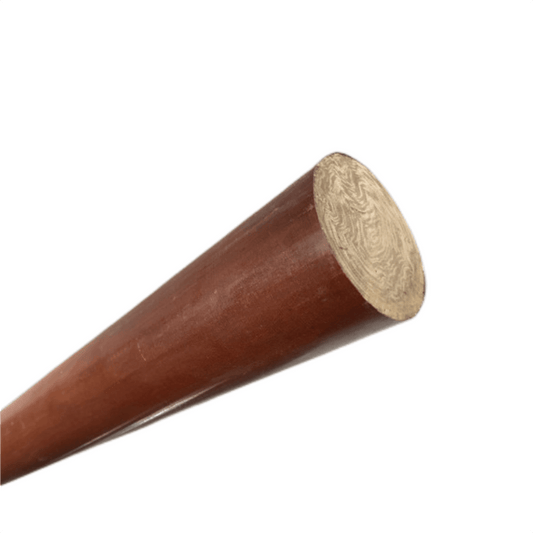Key Takeaways
- Bakelite is an ideal material for electrical insulation due to its heat resistance, electrical insulating properties, and durability.
- It has proven to be reliable for use in electrical systems such as panels, connectors, and insulated structural parts, where safety and performance are paramount.
- Custom Bakelite electrical insulation parts can be produced using advanced techniques like CNC machining to meet specific application needs.
- Bakelite continues to be a cost-effective and sustainable choice for the electrical industry, with a long lifespan and proven reliability in demanding environments.
🎉🎉🎉Limited Time Offer Use code: QR4GNY08SHVR at checkout and enjoy a special discount on your entire order! 👉 Bakelite plastic

If you want to ensure your electrical components perform at their best while staying safe and reliable, Bakelite remains the go-to material for the job.
Bakelite, the first synthetic plastic, has stood the test of time. Since its invention in 1907, it has been valued across multiple industries for its impressive properties—especially its role as an excellent electrical insulator. Today, Bakelite remains a vital material in electrical engineering, providing safety, durability, and reliability in various electrical applications.
In this blog post, we’ll explore why Bakelite is an ideal material for electrical insulation, how its unique characteristics make it perfect for electrical applications, and how Insulated Bakelite Structural Parts continue to serve industries worldwide.
What is Bakelite?
At its core, Bakelite is a thermosetting plastic—a durable and heat-resistant material made from phenol and formaldehyde. Unlike thermoplastics that soften when heated, Bakelite undergoes a chemical reaction during manufacturing that makes it hard and permanent. This characteristic gives Bakelite outstanding strength, heat resistance, and electrical insulation properties, which is why it’s been used for over a century in electrical systems.
A Brief History of Bakelite
The creation of Bakelite marked the beginning of the modern plastics era. Invented by Belgian chemist Leo Baekeland in 1907, Bakelite was initially used for everything from household items to electrical insulation parts. It quickly became a staple in electrical equipment because it could withstand high temperatures and electrical currents—qualities essential in the electrical world. Over time, its use expanded, and Bakelite became integral to industries like automotive manufacturing, telecommunications, and more.
Today, Bakelite continues to play an essential role in electrical insulation, thanks to its impressive material properties. Let’s take a closer look at what makes Bakelite stand out as an electrical insulator.

Bakelite’s Electrical Insulation Properties
Bakelite’s key attributes—heat resistance, electrical insulation, and mechanical strength—make it the material of choice for electrical components that need to function safely in harsh environments.
1. High Heat Resistance
One of the most important qualities of Bakelite is its heat resistance. Electrical systems often generate significant amounts of heat, especially in high-voltage environments. Bakelite can withstand temperatures up to 250°C (482°F) without losing its structural integrity or insulating properties. This makes it an ideal material for electrical insulation parts like housing, switch gears, and circuit boards, where heat buildup is a concern.
For example, in power distribution systems, Bakelite is used for switchboards and connectors, which must endure high temperatures while providing safety to the system. Without Bakelite, components could overheat, fail, or even pose a fire hazard.
2. Excellent Electrical Insulation
Bakelite’s most notable feature in electrical applications is its ability to prevent electrical currents from flowing where they shouldn’t. As an electrical insulator, Bakelite helps protect against short circuits and electrical malfunctions. Its dielectric strength (resistance to electrical breakdown) makes it an ideal material for insulating parts in electrical panels, connectors, and motor components.
The insulating properties of Bakelite allow it to keep electrical components separated and shielded from unintended contact with other conductive materials. This ensures safety and reliability, especially in complex electrical systems that rely on various interconnected parts.
3. Durability and Resistance to Environmental Stress
Another benefit of Bakelite is its resistance to environmental factors like moisture, chemicals, and UV rays. Electrical systems are often exposed to harsh conditions, from outdoor power lines to industrial settings where humidity and chemicals can cause other materials to degrade.
Bakelite’s resistance to moisture and chemicals ensures that its electrical insulating properties remain intact, even when exposed to corrosive environments. Whether used in electrical enclosures, electrical connectors, or other vital components, Bakelite holds up under long-term use, offering both performance and protection.
Applications of Bakelite in Electrical Insulation
Now that we understand why Bakelite is so well-suited for electrical insulation, let’s explore its many applications across industries.
Electrical Panels and Switchgear
Bakelite is often used in electrical panels and switchgear, where its high heat resistance and electrical insulating properties make it the ideal choice. In switchgear, Bakelite prevents electrical components from making unintended contact, ensuring the safe operation of the system. Its ability to resist heat and electrical breakdown is crucial in these environments, where overheating can lead to equipment failure or fire hazards.
Insulating Pads and Gaskets
In addition to panels and switches, Bakelite is commonly used for insulating pads, gaskets, and washers. These components are essential for preventing electrical shorts between parts, especially in heavy machinery and motors. Bakelite insulation also helps reduce vibration and noise, making it a vital material for enhancing both the electrical safety and operational efficiency of industrial equipment.
Electrical Connectors and Terminals
Bakelite is also used to manufacture electrical connectors and terminals, which must maintain a high degree of safety and electrical integrity. The ability of Bakelite to withstand both high temperatures and electrical stresses makes it an excellent choice for ensuring these critical connections remain safe and operational.

Bakelite vs. Other Electrical Insulation Materials
While Bakelite is a popular choice, it’s worth comparing it to other common electrical insulating materials to understand its unique advantages.
Bakelite vs. Rubber
Rubber is another common material used for electrical insulation. While rubber is flexible and provides good insulation, it has a lower resistance to heat and environmental degradation compared to Bakelite. Over time, rubber can degrade when exposed to UV rays or high temperatures. In contrast, Bakelite’s superior heat resistance and mechanical strength make it a more durable and reliable choice for long-term use in electrical applications.
Bakelite vs. Epoxy Resin
Epoxy resin is frequently used in electrical applications due to its adhesive and insulating properties. However, while epoxy offers some heat resistance, it does not match the high-temperature tolerance that Bakelite provides. Bakelite’s heat stability and dimensional integrity under temperature extremes make it the superior material in applications requiring extended exposure to high heat.
Bakelite vs. PVC
PVC is often used for electrical insulation, particularly in wiring and conduit. However, Bakelite offers better mechanical properties and higher heat resistance. PVC can become brittle over time, especially when exposed to high heat or UV radiation, while Bakelite remains strong and durable in the most demanding environments.
Custom Bakelite Electrical Insulation Parts
One of the reasons Bakelite continues to be favored in the electrical industry is its versatility. Thanks to advanced manufacturing techniques like CNC machining and molding, Bakelite can be custom-made to meet the specific needs of any electrical application.
Tailored Insulating Components
Whether you're designing insulated Bakelite structural parts for electrical panels, motors, or circuit boards, custom manufacturing allows for the production of parts that meet exact specifications. CNC machining, for example, enables the creation of intricate designs and precise tolerances, making it easy to produce components tailored to unique electrical needs.
Case Study: Custom Bakelite Solutions
A good example of Bakelite's customization potential can be seen in the electrical industry, where custom Bakelite parts have been used to create safer, more efficient electrical systems. By tailoring the design to fit specific environmental factors (such as temperature and humidity), these parts not only perform better but also reduce the risk of electrical failures.

Why Choose Bakelite for Electrical Insulation?
Bakelite offers several compelling reasons for its continued use in electrical systems:
Cost-Effectiveness
Compared to other high-performance materials like ceramics, Bakelite is a more cost-effective option for electrical insulation. Its combination of durability, heat resistance, and electrical performance provides excellent value, especially for large-scale manufacturing.
Sustainability
Bakelite’s durability means that parts made from it have a long lifespan, reducing the need for frequent replacements. While Bakelite is not as widely recyclable as some modern plastics, its longevity contributes to a more sustainable approach by reducing waste and ensuring that products last longer.
Reliability
Bakelite is known for its reliable performance over time. From electrical enclosures to insulated structural parts, Bakelite ensures that electrical systems run smoothly and safely, even under demanding conditions.
Looking Forward: The Future of Bakelite in Electrical Insulation
Bakelite’s role in electrical insulation shows no signs of diminishing. As industries continue to push for more advanced electrical technologies—such as renewable energy systems and electric vehicles—Bakelite’s unique properties make it an ideal candidate for meeting the evolving demands of these sectors.
In the coming years, we can expect Bakelite to remain a key material in the development of high-performance electrical systems that require superior heat resistance, electrical insulation, and mechanical strength.
Bakelite’s Lasting Role in Electrical Insulation
In conclusion, Bakelite stands out as an ideal electrical insulator due to its unmatched combination of heat resistance, electrical insulation properties, and durability. Whether in electrical panels, connectors, or insulated structural parts, Bakelite continues to be a material of choice for industries worldwide. Its customizability and cost-effectiveness further solidify its position as a go-to material for safe, long-lasting electrical solutions.
If you’re interested in custom Bakelite electrical insulation parts for your next project, feel free to reach out
to us for a consultation. Our team can work with you to create Insulated Bakelite Structural Parts that meet your unique specifications and ensure optimal performance in your electrical systems. Whether you need custom designs for high-temperature environments or need parts that can withstand electrical stresses, Bakelite remains a trusted solution.
We are here to help you select the right material for your project, providing you with cost-effective, durable, and reliable electrical insulation options. Reach out today to discuss how Bakelite can help you achieve the best results for your electrical applications.
Ready to Invest in Custom Bakelite Insulated Parts?
Are you looking for custom Bakelite electrical insulation parts to enhance your electrical systems? Our team at Beeplastic specializes in providing Insulated Bakelite Structural Parts tailored to
your specific needs. Whether you're designing components for high-temperature environments or need reliable electrical insulation solutions, we have the expertise to deliver the best results.
At Beeplastic, we work with you every step of the way—from initial consultation to final production—to ensure that your custom Bakelite parts meet the highest standards of quality and performance. Our advanced manufacturing capabilities like CNC machining and molding allow us to create precise, durable, and cost-effective solutions for your electrical applications.
Why Choose Us for Your Bakelite Electrical Insulation Needs?
- Expertise and Experience: With over 15 years in the plastic processing industry, our team has the knowledge and skills to craft the most effective and durable Bakelite parts.
- Custom Solutions: We understand that every project is unique. Our engineers work closely with you to design customized Bakelite electrical insulation parts that meet your exact specifications.
- Quality Assurance: We take quality seriously. Each part is rigorously tested to ensure it meets industry standards and performs reliably over time.
- Cost-Effective Pricing: We offer competitive pricing without compromising on quality, ensuring that you get the best value for your investment.
- Fast Turnaround: Our efficient production process ensures quick lead times so you can keep your projects on schedule.
Let’s Get Started
If you're ready to optimize your electrical systems with the best in Bakelite insulation, contact us today! Whether you need a single prototype or a large batch of custom parts, we’re here to help. Request a quote or schedule a consultation to get started on your next project.

🎉🎉🎉Limited Time Offer Use code: QR4GNY08SHVR at checkout and enjoy a special discount on your entire order! 👉 Bakelite plastic
Don’t wait—secure the reliability and performance of your electrical systems today with the power of Bakelite insulation. Reach out to us now to discuss your needs and take the next step toward a more efficient and durable electrical solution.






